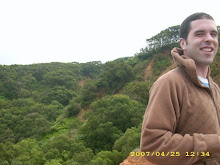
It's not news here in Winnipeg that National Hockey League franchises in the Southern U.S. are struggling. The Phoenix Coyotes have been embroiled in an ownership search for over a year (which may be coming to an end, as someone seems to be willing to lose money hand over fist in the desert). The Atlanta Thrashers owners want to sell and are currently conducting legal action among each other. The Columbus Blue Jackets and Nashville Predators have trouble drawing crowds and establishing a fan base. Even the New York Islanders, four-time Stanley Cup champion, are struggling to draw crowds to their derelict arena on Long Island.
These struggles have been fodder for hockey fans and the media in two Canadian cities who were burned in the past by the NHL, Winnipeg and Quebec City. Both cities want their teams back. Manitoba Moose owner, Mark Chipman made a serious offer for the Coyotes, while Quebec City has plans to build a new arena to attract an NHL team.
Unfortunately, while relocation to these two cities might be a long term possibility for NHL, nothing is likely to happen in the short term. ESPN's Scott Burnside explains this in a recent column. The NHL seems more committed than ever to making a go of hockey in the Southern U.S.
This hasn't deterred a group of Nordiques fans from using a publicity stunt to make their point. Roughly 1000 fans are expected to bus down to Long Island and hold a rally at an upcoming Islanders-Thrashers game.
Will this change anyone in the NHL's head office mind? Probably not. But it's an interesting use of a pseudo event to gain publicity. I don't think I've ever heard of people from a city that wants a team rallying in a city of the team they want. It's pretty much unprecedented.

I kind of wish someone in Winnipeg had thought of this idea first. Okay, who's down for a trip to a Columbus-Nashville game?
